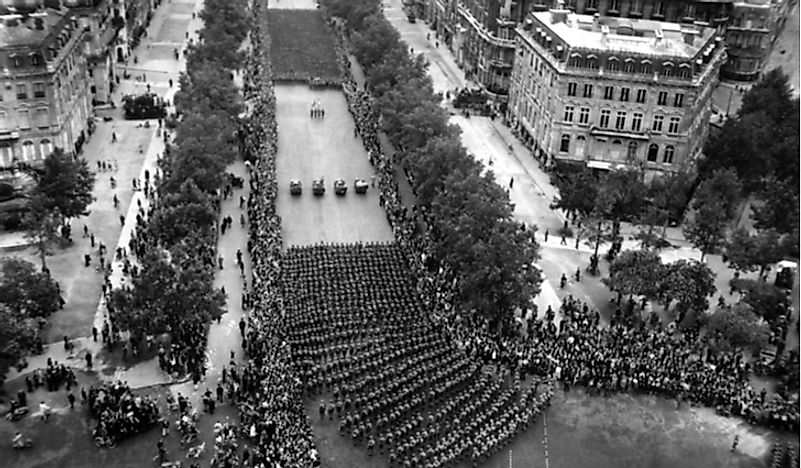When Did WW2 End?

The Second World War was a major engagement that lasted between 1939 to 1945 and was responsible for the deaths of an astonishing 12 million people. World War II was caused by a variety of factors and officially began on September 1, 1939 when France and Britain declared war on Germany. World War Two officially came to an end on September 2, 1945, following the signing of the surrender documents by the Japanese emperor. The Japanese surrender became official in early August 1945. Following the death of Adolf Hitler, German forces surrendered on April 29, 1945.
On May 8 in Europe, Winston Churchill announced victory over the continent, a victory that ended the war in Europe. Japan, however, persisted in the war. In a bid to end the war in an efficient and quick manner, United States President Truman authorized the use of atomic bombs on Japan, with two being dropped on Hiroshima and Nagasaki on August 6 and 9 respectively. The devastation that followed led to an unconditional surrender that consequently brought the most devastating war in history to an end.
Events Leading To The Commencement Of World War II
Although history points to many reasons and events leading to the Second World War, four stand out: The Treaty of Versailles, anti-communism, expansionism, and failure of the League of Nations. The aftermath of the Treaty of Versailles adversely affected the economy of Germany which left its citizens bitter. It was this bitterness that led to majority voting in the Nazi rule which promised to restore their status. The Nazi rule led Germans to invade Poland based on false fabricated reasons. This German invasion into Poland which was countered by Britain and France is believed to be the first step to the commencement of the war.
The rise of Russia as a communist nation and its influence on other countries to uphold communism instead of capitalism was viewed as a threat by many European nations. Expansionism is the other cause of the Second World War, whereby several nations sought to increase their territorial claim. An example is Japan which was interested in expanding into China hoping to benefit from their vast resources and economy. Germany, under Hitler’s rule, wanted to expand further into the European territories and reclaim areas they believed were rightfully theirs.
Following the end of the First World War in 1918, the League of Nations was formed to help prevent any occurrence of another world war. The failure of the League of Nations is believed to have been one of the reasons leading to the conflict that culminated in a global war.
Impact Of The World War II
Massive losses of human life were observed during and at the end of the war. At the end of the war, several nations occupied territories that previously did not belong to them in the form of settlements. This war led to an economic growth in the nations that produced and supplied warfare armamentarium. It also led to technological advancements since each alliance relied on innovation to beat the rival.











